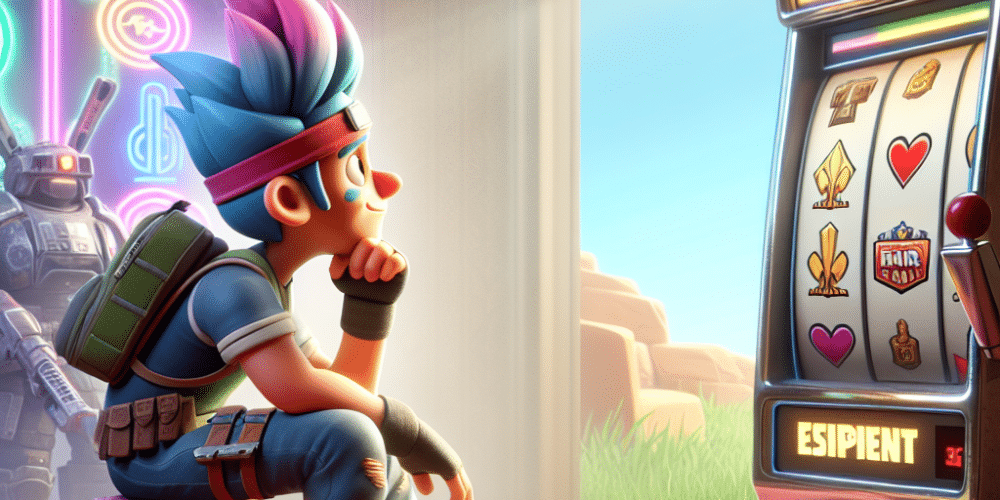Epic Games, the powerhouse behind the globally popular game Fortnite, has recently been at the center of controversy over accusations of incorporating gambling elements into its platform. The company has responded firmly, asserting its strict anti-gambling stance and clarifying its policies regarding player-generated content. However, the situation has highlighted ongoing debates about the nature of loot boxes and their place in video gaming.
In November 2025, Epic Games found itself addressing concerns from players and regulators alike about the introduction of mechanics that could potentially facilitate gambling within Fortnite. The company pointedly stated that casino-style games and activities are not permitted under its developer rules. It emphasized that any resemblance to gambling in player-created content is a misunderstanding of its guidelines.
The controversy arose after Epic Games updated its creator tools, introducing features that allow developers to implement paid random item mechanics. This has reignited discussions about loot boxes, a controversial topic in the gaming industry that has drawn parallels with gambling. Epic Games defended its position by noting that loot boxes, which offer players random in-game items in exchange for payment, do not constitute gambling. The developer argued that because all loot boxes deliver some kind of reward, they differ from traditional gambling, which involves risking money for the chance of a win or loss.
In explaining the nuances of loot boxes, Epic Games highlighted that these mechanics have become a common practice in gaming. Loot boxes provide players with an assortment of random in-game assets, ranging from aesthetic enhancements to items that affect gameplay. Proponents argue that these boxes are distinct from gambling because they do not offer monetary prizes, which is a fundamental characteristic of gambling activities.
Despite these assurances, the topic remains contentious. Critics of loot boxes maintain that they exploit vulnerable players, particularly younger audiences, by fostering addictive behaviors akin to gambling. They argue that the random nature of loot box rewards can lead to excessive spending without guaranteeing desired outcomes, thus preying on players’ impulses and inclinations toward risk-taking.
This debate is not new but continues to evolve as the gaming industry grows and changes. Some jurisdictions have already taken action against loot box mechanics, implementing bans or enforcing stringent regulations to protect players, especially minors. These markets have raised concerns about the potential for loot boxes to act as a gateway to gambling, prompting calls for industry-wide reforms and the introduction of age verification measures to prevent exploitation.
In response to these ongoing discussions, some industry analysts have suggested that game developers, including Epic Games, could benefit from increased transparency and consumer protection measures. By clearly disclosing the odds of obtaining specific items from loot boxes and providing more robust parental controls, developers might alleviate some of the concerns associated with these mechanics.
However, there are others in the industry who caution against overregulation, arguing that such measures could stifle creativity and innovation in game design. They posit that loot boxes, when implemented responsibly, can enhance player engagement and offer a unique form of entertainment. From this perspective, the focus should be on educating players and parents about the responsible use of in-game purchases rather than imposing blanket bans.
Epic Games’ current stance, as articulated in its latest public statements, reflects a commitment to balancing the creative freedom of its developers with the need for responsible gaming practices. The company has reiterated that its policies are designed to protect players while fostering a diverse and engaging gaming environment.
As the conversation around loot boxes and gambling in games continues, it remains clear that the issue is complex and multifaceted. While Epic Games has taken steps to address immediate concerns and clarify its position, the broader industry will likely continue to grapple with these challenges. The outcome of this ongoing debate could shape the future of digital gaming, influencing both regulatory approaches and industry standards in the years to come.
Ultimately, the discussion surrounding loot boxes and gambling features in games like Fortnite underscores the need for a nuanced approach that considers the interests of all stakeholders. By working collaboratively, game developers, regulators, and players can ensure that video gaming remains a safe, enjoyable, and innovative form of entertainment.

















